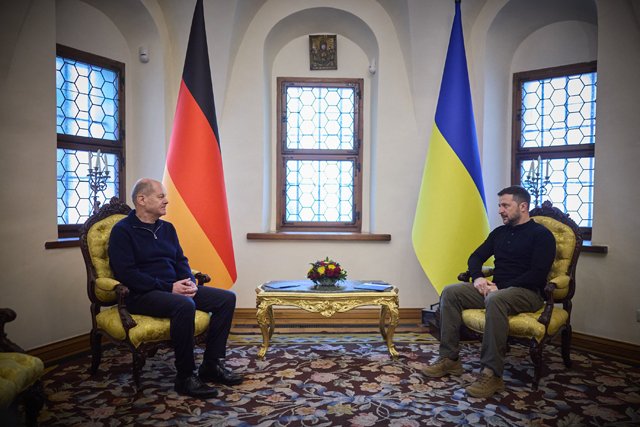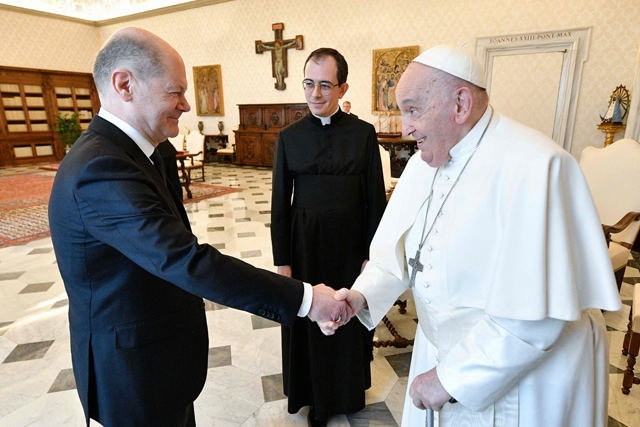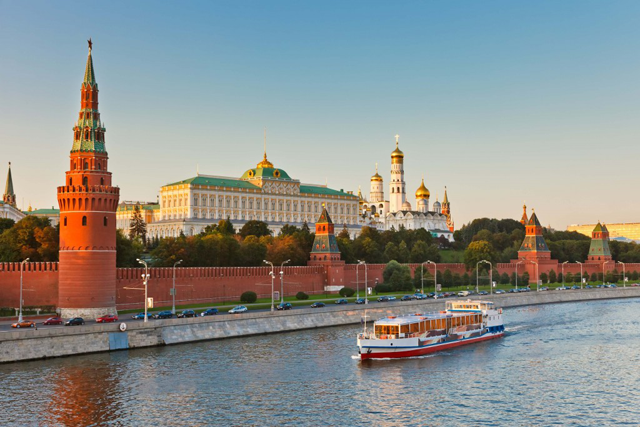You are here
Scholz says too early to consider German peacekeepers in Ukraine
By AFP - Dec 04,2024 - Last updated at Dec 05,2024

German Chancellor Olaf Scholz (right) answers questions by members of parliament at the German lower house of parliament Bundestag in Berlin on Wednesday (AFP photo)
BERLIN — German Chancellor Olaf Scholz said on Wednesday it was too early and "inappropriate" to discuss whether Berlin would in future send troops to a possible peacekeeping force in Ukraine.
He also stressed that, as Ukraine's war with Russia rages on, it was "out of the question that we would send troops or German soldiers to Ukraine in the current situation".
Scholz was addressing speculation which had followed comments by Foreign Minister Annalena Baerbock at a meeting with her NATO counterparts in Brussels on Tuesday.
Asked about a possible future multinational peacekeeping force in Ukraine, Baerbock said: "We will of course also support everything that serves peace in the future with all our strength from the German side."
This was interpreted by some as leaving the door open to German participation in such a hypothetical force.
But Scholz emphasised that Baerbock was speaking about "what might happen in a future post-war period and was trying to avoid saying yes or no".
Speaking in parliament, he added that "it was totally inappropriate for us to speculate on what might happen after a negotiated ceasefire".
Foreign ministry spokesman Sebastian Fischer told a regular press conference that Baerbock's comments had been "exaggerated" in some media reports.
There was "currently no indication" that Russia was willing to enter into talks, Fischer said, meaning that discussions over what a peace deal could look like were premature.
Germany has been Kyiv's second biggest supplier of military aid since Russia launched its full-scale invasion of the country in February 2022.
However, Scholz has refused to send long-range Taurus missiles to Ukraine, saying that this could lead to a direct conflict between Russia and NATO.
Ahead of an early parliamentary election expected at the end of February, Scholz has emphasised his cautious stance on Ukraine, in contrast to the leader of the main opposition CDU/CSU Friedrich Merz, who has advocated sending Ukraine the Taurus missiles.
Related Articles
KYIV, Ukraine — Ukraine needs more weapons and stronger diplomatic backing to reach a "just peace" with Russia, President Volodymyr Zelensky
BERLIN — German Chancellor Olaf Scholz on Saturday promised a full investigation after what appeared to be a recording of confidential army
MOSCOW — The Kremlin on Monday said the content of leaked conversations between German officials discussing potential strikes on Crimea prov














